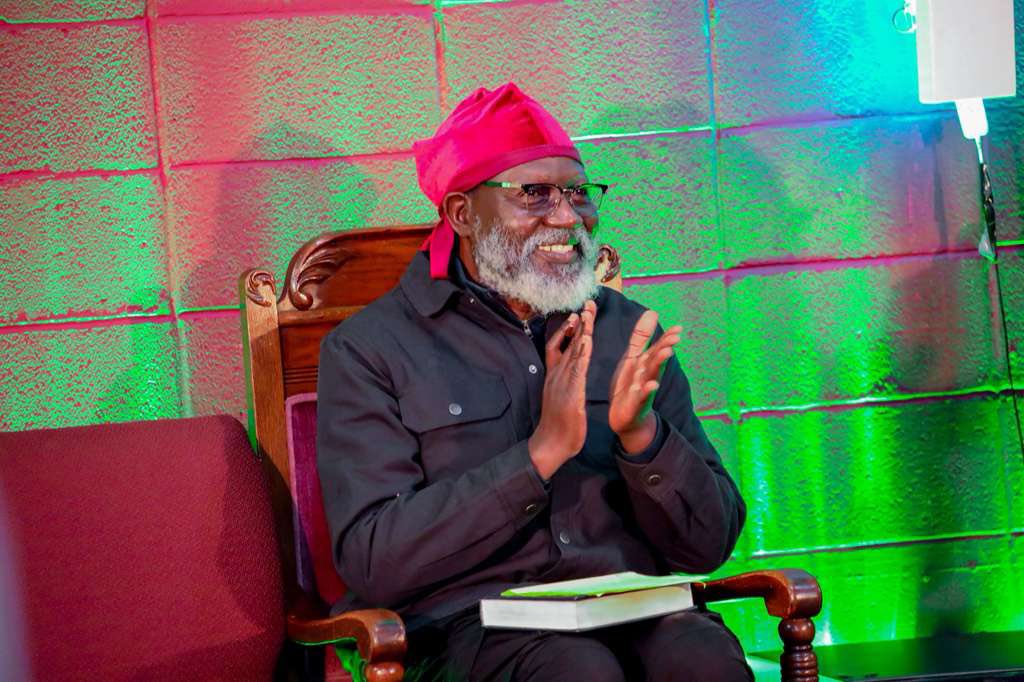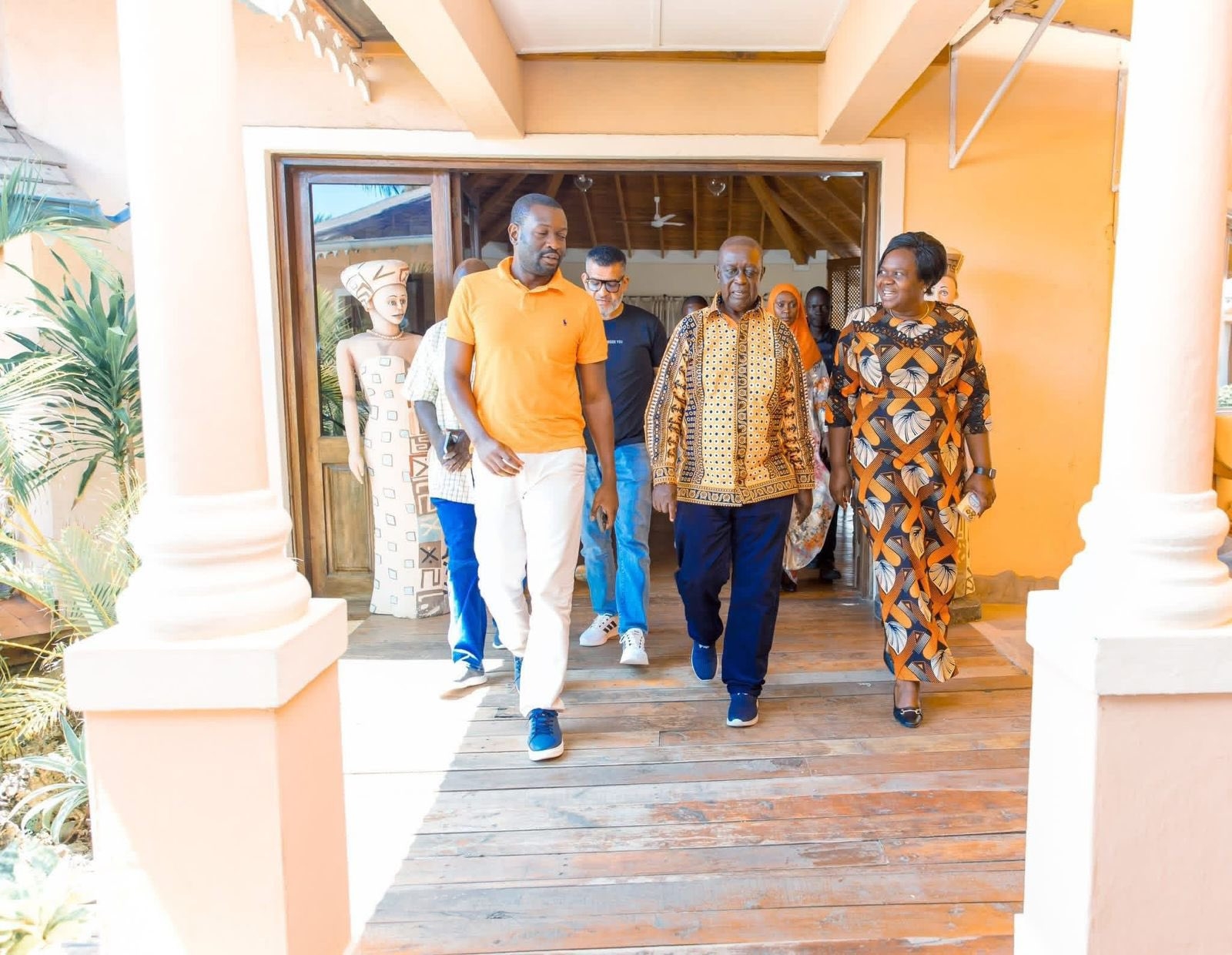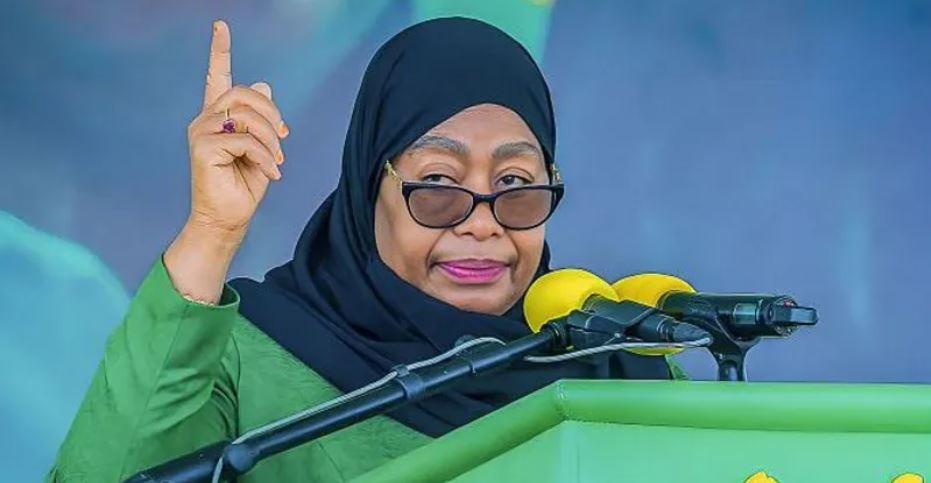 Roots Party leader George Wajackoyah, who is in the U.S. to rally diaspora support for his 2027 presidential bid/HANDOUT
Roots Party leader George Wajackoyah, who is in the U.S. to rally diaspora support for his 2027 presidential bid/HANDOUT Minnesota’s first Kenyan-American elected official Huldah Momanyi welcomes Roots Party leader George Wajackoyah, who is in the U.S. to rally diaspora support for his 2027 presidential bid/HANDOUT
Minnesota’s first Kenyan-American elected official Huldah Momanyi welcomes Roots Party leader George Wajackoyah, who is in the U.S. to rally diaspora support for his 2027 presidential bid/HANDOUTRoots Party leader Prof. George Wajackoyah has admitted that his famous 2022 campaign promise to make Kenya a bhang-exporting country was not based on a serious policy proposal.
Wajackoyah revealed that the pledge was rather a tactic to attract attention in a crowded presidential race.
Speaking during a church service in Minnesota, United States, the former presidential candidate said he made the controversial pledge simply to create an audience and spark public interest during the heat of the 2022 general election campaigns.
“When I said we are going to smoke bhang, I wanted an audience. I wanted somebody to listen to me,” he said, drawing laughter from the congregation.
Wajackoyah, who ran for president under the Roots Party of Kenya, became one of the most talked-about figures during the 2022 campaign season due to his unconventional promises and flamboyant style.
His manifesto proposed legalising and commercialising marijuana, selling snake venom, and even promoting night running as a form of tourism—ideas that he now admits were partly designed to gain attention rather than represent actionable policies.
“When I said we are going to sell snakes for revenue, the church said ‘hey’. When I said night runners will promote tourism, the church also opposed,” he recalled.
Wajackoyah also said that some of his statements—such as his pledge to recognise women who keep snakes at home and are often labelled witches—were intended to challenge stereotypes and provoke public debate.
“People call them witches, but I said no, that is also a profession to recognise,” he added.
The law professor clarified that he does not drink alcohol, eat meat or fish, and has never smoked—including marijuana, despite his vocal advocacy for its legalization during 2022 campaigns.
In 2022, Wajackoyah rose to national prominence with his bhang-based economic vision, promising to make Kenya one of the world’s leading exporters of cannabis for medicinal and industrial use.
He argued that the move would help solve two of the country’s biggest challenges—unemployment and public debt—by tapping into the global cannabis market.
“If I win, I will pass laws to regulate the farming and production of marijuana for industrial and medical use,” he said at the time.
Although his campaign lacked detailed economic data to back up those claims, Wajackoyah’s message resonated strongly with sections of Kenya’s youth, many of whom are struggling with joblessness and poverty.
His charisma and out-of-the-box thinking made him a social media sensation, turning him into one of the most talked-about personalities of the election.
However, his radical proposals drew condemnation from religious leaders and conservative groups.
“There is nothing wrong with smoking it when it is legalised and the regulatory bodies have approved for it to be smoked,” Wajackoyah countered during one of his campaign rallies, insisting that his stance was grounded in science and economic pragmatism rather than moral permissiveness.
Ultimately, Wajackoyah’s bid for the presidency was unsuccessful. According to the Independent Electoral and Boundaries Commission (IEBC), he garnered 61,969 votes, representing 0.44 per cent of the total valid votes cast.
The election was a closely fought contest between William Ruto of the United Democratic Alliance (UDA), who won with 7,176,141 votes (50.49 per cent), and Raila Odinga of the Azimio la Umoja–One Kenya Coalition, who received 6,942,930 votes (48.85 per cent).












